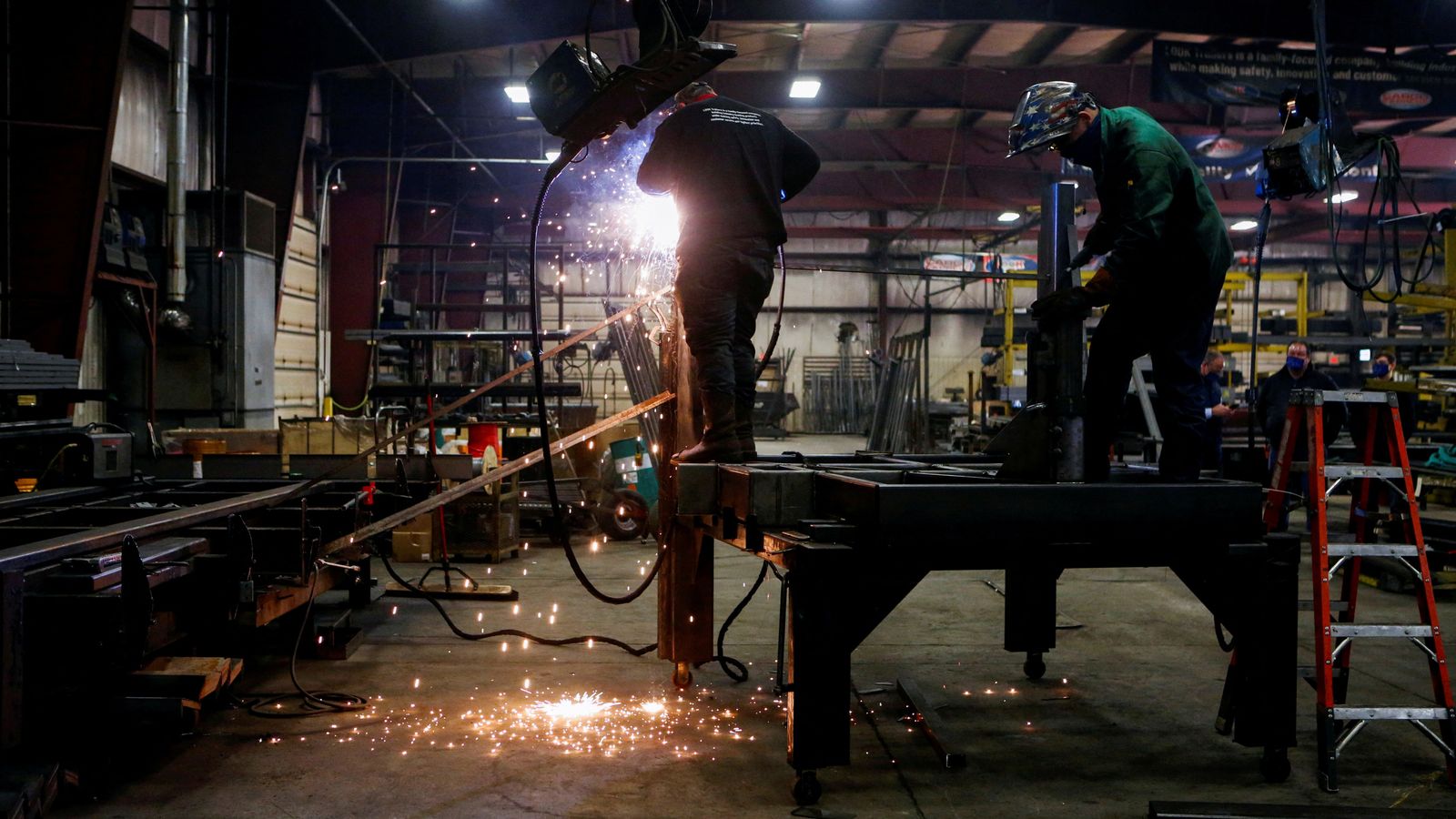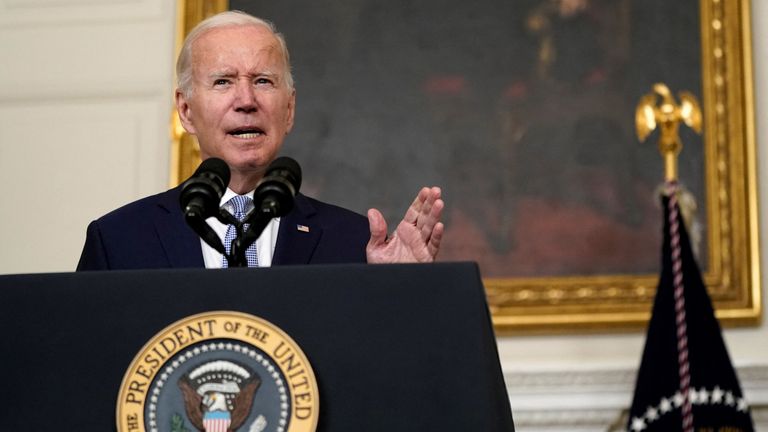The world’s largest economy has contracted for a second consecutive quarter, although the downturn is yet to be officially termed a recession.
The US recorded a 0.9% decline in output on an annualised basis between April and June, when economists had forecast an increase of 0.5%.
The early data would meet the international criteria for a recession because the first quarter also saw a contraction – of 1.6%.
But the country has an official arbiter of recessions – the National Bureau of Economic Research (NBER) – and it is yet to make such a judgement.
It defines a recession as a “significant decline in economic activity spread across the economy, lasting more than a few months, normally visible in production, employment, real income, and other indicators”.
Sky News US correspondent Mark Stone said: “There’s plenty of semantics about what the definition of a recession is, but two quarters of negative growth certainly isn’t good and, by some definitions, is the beginning of a recession.
“I should say that the treasury department in the US is very much cautioning against calling this a recession – they are saying ‘wait and see’ and they also point out that if it is the beginning of a recession, it’s a very unusual one, because the job figures in America are extraordinary at the moment.
“The number of jobs that are being created at the moment, it is huge.
“But compare 2022 in terms of GDP with 2021, where we saw 6.3% growth in the first quarter last year, 6.7% growth in the second quarter.
“Now it’s all in negative territory – worrying times, combined with extraordinary inflation.”
Job growth averaged 456,7000 per month in the first half of the year, and the number of new claims for state unemployment benefits fell in the week ending 23 July.
‘We are on the right path’
US President Joe Biden listed a series of economic achievements, he said: “That doesn’t sound like a recession to me.
He added: “It’s no surprise that the economy is slowing down as the Federal Reserve acts to bring down inflation.
“We are on the right path and we will come through this transition stronger and more secure.”
He also said a new $739bn Inflation Reduction Act would lower healthcare costs and be an investment in energy security.
It will also “restore fairness to the tax code… by making the largest corporate nations and large corporations in America pay their fair share without any new taxes on people making under $400,000 a year”.
“Experts, even some experts who have criticised my administration in the past, agree that this bill will reduce inflationary pressures on the economy,” he said.
“Look, this bill is far from perfect. It’s a compromise. But it is, it’s often how progress is made, by compromises.
“And the fact is that my message to Congress is this: This is the strongest bill you can pass to lower inflation, cut the deficit, reduce health care cost, tackle the climate crisis, and promote and promote energy security, all the time while reducing the burdens facing working class and middle class families.
“So pass it, pass it for the American people, pass it for America.”
He later added in a White House statement: “If you look at our job market, consumer spending, business investment… we see see signs of economic progress in the second quarter.
“The best thing we can do right now is to put our economy in a better position to make the transition to stable steady growth…”
Wall Street’s main indexes opened flat but at lunchtime (eastern time) the Dow Jones was up 0.69%, the S&P 500 was up 0.71%, and the Nasdaq rose 0.47%.
‘The next few months will be crucial’
Rob Clarry, investment strategist at wealth manager Evelyn Partners, said that the economic contraction was driven by weak readings for investment, government spending and inventories, although consumer spending – an important indicator of underlying growth – held up.
“The NBER is tasked with deciding this and the indicators it tracks include real personal income minus government transfers, employment, various forms of real consumer spending, and industrial production,” he said.
“None of these indicators are pointing towards a recession at this moment in time.
“The Federal Reserve continues to face a challenging balancing act in bringing down inflation without damaging economic growth – and this data points to an increasingly narrow path for a soft landing.
“The next few months will be crucial in seeing whether inflation eases.
“If it remains elevated, we will see the Fed continue to prioritise inflation at the expense of growth, which will push the US economy closer to a broader economic slowdown.”

